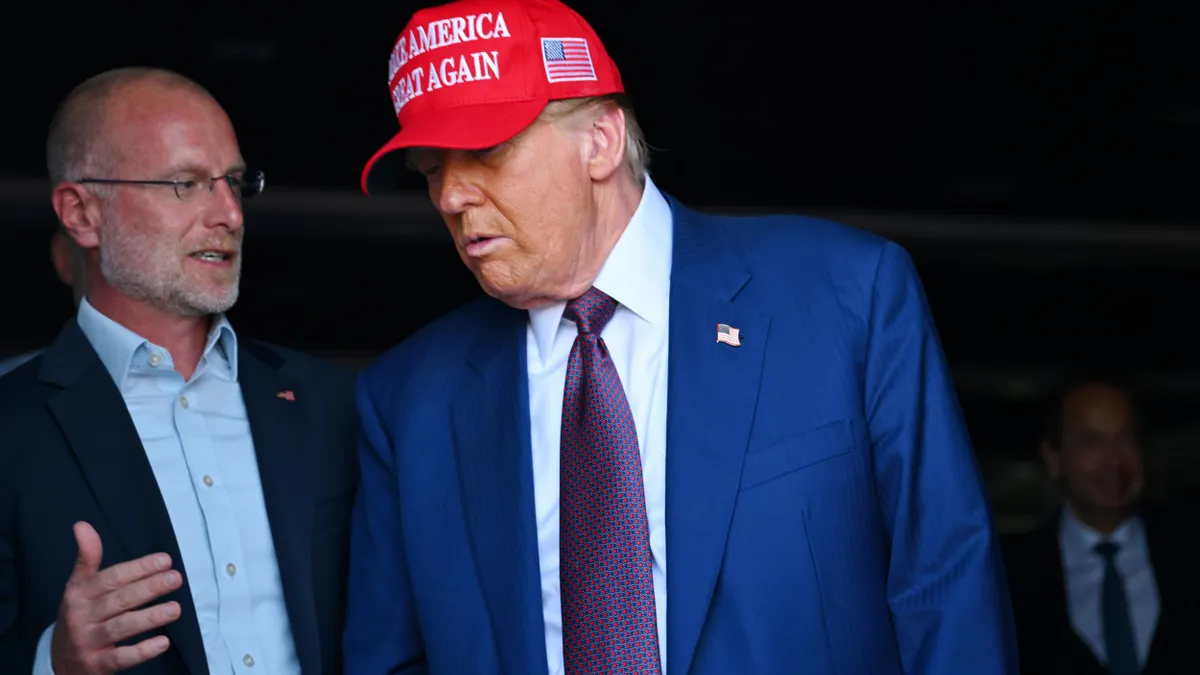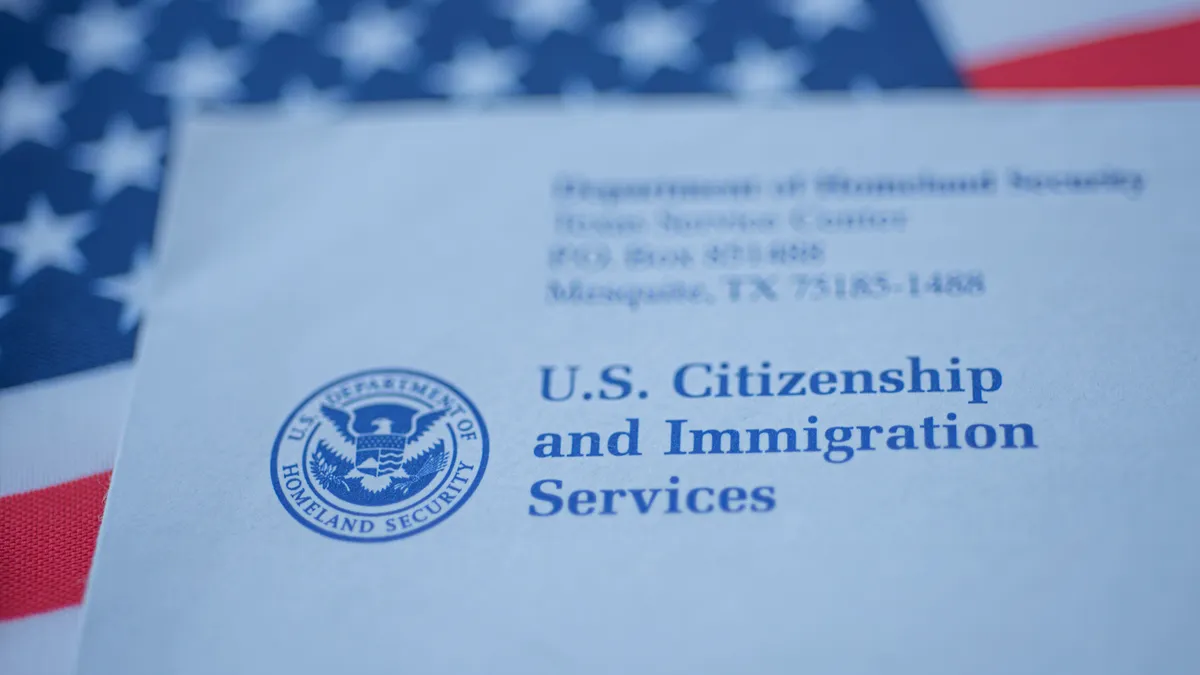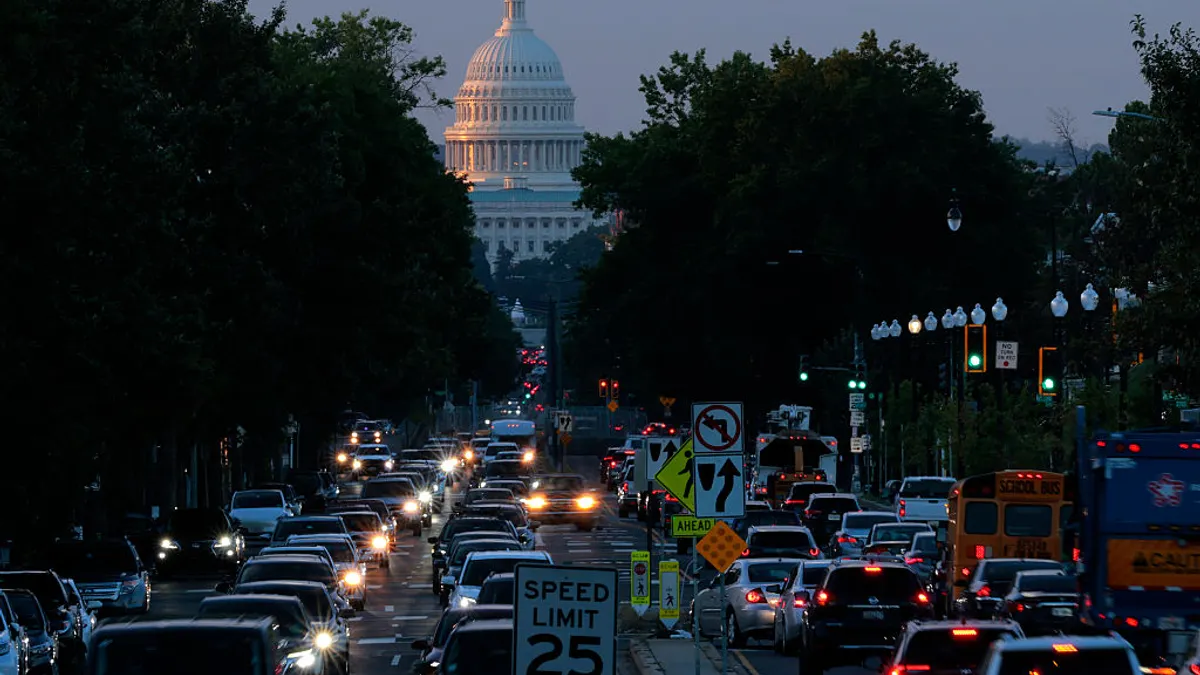President-elect Donald Trump’s pick to chair the Federal Communications Commission, Brendan Carr, could signal a bumpy road ahead for some of the agency’s E-rate program initiatives.
As a Republican commissioner for the past seven years, Carr has voted against expanding the program and covering school bus Wi-Fi or internet hotspots. The 28-year-old E-rate program subsidizes broadband service discounts for schools and libraries, in the process widening the reach of internet availability for students and families, particularly in rural areas.
Trump’s selection of Carr in November comes amid other uncertainty for the E-rate program’s future: The U.S. Supreme Court is set to weigh in on a case next year questioning the constitutionality of E-rate’s funding mechanism, known as the Universal Service Fund.
E-rate advocates and school leaders have touted the program's expansion as a way to address gaps in home internet access for students, which has become more critical with the growing digitization of schoolwork. This disparity has come to be referred to as the “homework gap.”
In an October 2023 dissent to the FCC’s decision to expand E-rate coverage to include school bus Wi-Fi, Carr said he had “serious legal concerns with this decision” given that the FCC’s authority over E-rate funds is “explicitly confined to classrooms” by Congress.
The school bus Wi-Fi expansion has since been challenged in a lawsuit filed against the FCC by the parents of a 16-year-old boy who died by suicide after being cyberbullied. Molak v. FCC case — which is pending in the 5th U.S. Circuit Court of Appeals — claims that using E-rate funds to provide internet on school buses exceeds the FCC’s authority to connect schools and libraries to broadband.
No to E-rate’s expansion
In June, when Carr dissented against E-rate’s expansion to cover Wi-Fi hotspots in schools, he cited the amicus brief filed by several senators, including Sen. Ted Cruz, R-Texas, in support of the plaintiffs in Molak v. FCC.
Carr noted that the senators “expressed deep concerns” over the FCC’s move to expand E-rate beyond congressional intent.
Quoting their brief, Carr wrote, “‘Once limitations are set by Congress, they must be followed — not thwarted — by the federal regulators charged with their enforcement,’ the Senators wrote. Yet that is exactly what the Commission does today — again.”
Andrew Jay Schwartzman, senior counselor for the Benton Institute for Broadband & Society, said he does not think Carr is opposed to the E-rate program. “He has his own views on how it should be funded,” Schwartzman said, adding that there’s “much more support for the program than opposition.”
The Benton Institute has intervened in the Court of the Appeals to support the FCC’s effort to defend the Universal Service Fund, Schwartzman said.
Carr has been confirmed three times by the Senate to serve as FCC commissioner during both the Biden and Trump administrations. He also wrote the chapter on the FCC in the Heritage Foundation’s Project 2025, which outlines a proposed conservative agenda for a Republican presidential administration. Carr did not mention E-rate or the cybersecurity pilot in his chapter.
Carr did not respond to a request for comment on Thursday.
The future for the FCC’s cybersecurity pilot?
Carr also dissented against the FCC’s June decision to fund a $200 million cybersecurity pilot program over the next three years. The pilot aims to help schools fund some of their cyberdefense needs. However, it does not tap into E-rate funds.
Kris Hagel, chief information officer at Washington state’s Peninsula School District, said school leaders have been advocating for years for the federal government to help combat the increasing cybersecurity threats.
“We already know that the amount of money that was allocated to that pilot program is woefully insufficient,” Hagel said. He added that he “can’t imagine we’re going to see a substantial investment into that” when the pilot ends and the program needs to be reevaluated
As Trump’s pick for the FCC chair, Carr is poised to run the five-member commission, whose political majority is determined by whichever party is in the White House. Jessica Rosenworcel, the current FCC chair and a Democrat, recently announced she would step down from the FCC upon Trump's inauguration on Jan. 20.
In a November statement, Rosenworcel congratulated Carr on his upcoming appointment to lead the FCC.
“This agency has responsibility for communications technology that is vital for everything in modern civic and commercial life,” Rosenworcel said. “From his time here, I am confident that Commissioner Carr is familiar with the staff, the responsibilities of this new role, and the importance of continued U.S. leadership in communications.”




















